Women Work One Month For Free, Says MEP Glavak
ZAGREB, 14 July, 2021 - Women work one month for free due to lower wages and their total income, and consequently their pension, is lower because they care for children and the elderly, Croatian MEP Sunčana Glavak (EPP) said on Wednesday.
She was speaking at an event at Plitvice Lakes which discussed how to strengthen the position of women in Croatia and Europe, held as part of the Conference on the Future of Europe.
Glavak said a division into men's and women's departments was not felt in the EP because the persons there were competent, but added that a balance had not been achieved anywhere in Europe.
She called on citizens to engage in a debate on that and other European topics via the Commission's platform “futureu.europa.eu.”
Prime Minister Andrej Plenković said four women ministers in Croatia's 18 government departments was not enough, but added that they "run important departments and make a big contribution to this government."
He boasted that Croatian women hold high positions in European institutions - Dubravka Šuica is a Commission vice president, Marija Pejčinović Burić the Council of Europe secretary-general, Ivana Maletić a judge at the European Court of Auditors, and Maja Markovčić Kostelac the head of the European Maritime Safety Agency.
"As a government, we will continue to make an effort towards empowering and protecting women, towards equality and women's participation at a higher level and a high representation percentage," he said.
Present at the Plitvice conference were Tourism and Sport Minister Nikolina Brnjac, Culture and Media Minister Nina Obuljen Koržinek, Regional Development and EU Funds Minister Nataša Tramišak and Agriculture Minister Marija Vučković, while Šuica and EPP Women President Doris Pack participated virtually.
For more about politics in Croatia, follow TCN's dedicated page.
New Waste Management Legislation Will Make Bills Higher, Says Opposition
ZAGREB, 13 July, 2021 - Some opposition parties claimed on Tuesday that the new waste management law will result in higher bills for citizens and that this will in particular affect lessors and small entrepreneurs.
The entire waste management system is based on waste management centres which are very expensive and that will be evident once citizens receive their new bills, said MP Sanja Udović (SDP).
She claimed that in those areas where these centres have been established, citizens can expect their bills to increase by 100 percent. "We, in Primorje Gorski Kotar County can soon expect the end price to go up, that means the price citizens pay will increase by some 30 to 40 percent," she said.
MP Marin Lerotić (IDS) underscored that the new bill doesn't go in favour of citizens nor lessors or small businesses who have been categorised as non-households and will pay a higher price.
"Shopping centres will pay the same, minimal service, as will shoemakers, or camp sites for up to 10,000 people will pay the same as a family-owned camp site with a capacity of up to 12 people. Hotels with a capacity of 100 rooms will pay the same price as a lessor of a flat," warned Lerotić.
MP Josip Borić (HDZ) explained that the government was providing a framework for prices to be defined by the local government.
"The opportunity exists to reduce the price for those who need to be rewarded. It contains criteria that allow that reduction for enterprises to certain household members, you can make them up yourself and include them in the price list," he said.
Local government officials have to realise that their role in waste management will be more complex, constructive, creative and more responsible, state-secretary in the Economy Ministry, Mile Horvat said.
For more about politics in Croatia, follow TCN's dedicated page.
HDZ Whip: Shopping Hours to be Adjusted to Seasonal Activities
ZAGREB, 6 July, 2021 - The whip of the ruling HDZ, Branko Bačić, said on Tuesday the parties of the parliamentary majority supported amendments to the Trade Act, adding that shopping hours would be adjusted to seasonal activities.
Parliament will debate the amendments in the autumn.
Speaking to the press after a meeting of the parliamentary majority, Bačić said they talked about the problem of restricting shopping hours until 9 pm, notably during the summer tourist season, when they have the biggest turnover.
"We must take account of the international convention on the rights of shop workers to daily and weekly rest," Bačić said, adding that it was important to reach as much consensus as possible with those to whom the law applied.
"We'll take into account rest and adjusting shopping hours to seasonal activities across Croatia. We'll give employers the possibility to decide how many Sundays in the year they will work."
Reformists president Radimir Čaćić pushed for as much flexibility regarding shopping hours as possible, saying that family firms should be allowed to work when and how long they wanted.
He praised the proposal by Silvano Hrelja of the Croatian Pensioners Party "not to define shopping hours but the number of non-working hours, to say that a shop must have eight non-working hours. That's very good as it allows everyone to organise themselves as they wish."
Bačić said the parliamentary majority also talked about plans to make job-keeping payments in sectors affected by the epidemic conditional on worker vaccination, adding that the purpose was to stimulate employers with a high vaccination rate "for contributing to curbing the epidemic as soon as possible."
He said the government was not shifting responsibility to employers and that measures to that effect would be agreed by the government, the social partners and legal experts, taking Croatia's economic interest into account.
For more about politics in Croatia, follow TCN's dedicated page.
MP Sandra Benčić (Možemo!) Says PM Plenković Boasting About Salvaging Economy While Destroying Factories
ZAGREB, 30 June, 2021 - The situation at the Orljava clothing factory in Požega, whose workers have not received wages for three months, shows that PM Andrej Plenković is destroying state-owned companies while boasting that he is salvaging the economy, MP Sandra Benčić said in parliament on Wednesday.
"The Prime Minister is boasting about salvaging the economy in the COVID-19 crisis while at the same time the state is destroying its own companies," Benčić, an MP of the Green-Left Bloc said, noting that the state's lack of interest in talks with protesting Orljava workers seemed to be an introduction in the company's bankruptcy to result in its partition.
Workers' Front MP Katarina Peović called for solidarity with Orljava workers.
"This is yet another case in which a company is being destroyed so that it could be sold," she said, stressing that Orljava was a state-owned company and wondering about the reason for the government's "irresponsible behaviour towards the company and its workers".
Croatian Sovereignists MP Željko Sačić stood up for Pula Faculty of Medicine Dean Krešimir Pavelić who was replaced on Tuesday after publicly stating his position on vaccination against COVID-19.
Sačić said he would request an explanation from the science and education minister and the competent institutions about why and under which circumstances Pavelić was replaced.
He noted that Pavelić's view was based on statistical and scientific data and that he expressed concern about side effects and harmful consequences of individual COVID-19 vaccines, adding that one should put a stop to "totalitarian and undemocratic treatment of different opinions."
For more about politics in Croatia, follow TCN's dedicated page.
Božinović Talks HDZ, Tourist Season, Assistance to Czechia
ZAGREB, 26 June 2021 - Interior Minister Davor Božinović said in Glina on Saturday that the HDZ, notably under Andrej Plenković's leadership, was winning despite all criticisms, not just from President Zoran Milanović, because citizens saw that the HDZ solved problems.
Responding to questions from the press, Božinović denied that there would be a constitutional crisis after parliament yesterday rejected Milanović's candidate for the Supreme Court president, Zlata Đurđević, saying that a third call for applications would probably be advertised.
Asked to comment on Milanović's claim following the rejection of Đurđević that the HDZ "is destroying" the state and the constitution, Božinović said the HDZ was winning despite all criticisms and enjoying the strongest public support because most citizens saw that the HDZ-led government was solving problems in very complex circumstances.
Success of tourist season depends on our responsibility
Speaking of the tourist season, Božinović said its success depended on people's responsibility in complying with COVID-19 measures.
Asked if night clubs would be closed this summer, he said those outdoors would be able to operate if customers were either vaccinated, tested or had recovered from the virus.
Solidarity with Czech Republic
Asked if the government had discussed helping the Czech Republic after a recent tornado, Božinović said the Interior Ministry and the Civil Protection Directorate immediately offered assistance to their Czech colleagues, "who informed us that at the moment assistance is not needed."
He said they were constantly in touch. "If anyone understands our friends in the Czech Republic, it's us in Croatia, and we know what the response was in the Czech Republic and the EU as a whole to what happened to us in Banovina and Zagreb," he said, referring to last year's devastating earthquakes.
Solidarity and the spirit of a common response to crises is becoming stronger in EU, he said, adding that recently emphasis was on bilateral cooperation, which he said would be cultivated in future as well.
"But for the system at European level to be as effective as possible, given that climate change will cause more and more such situations across the world and Europe, capacities must be joined for a rapid, effective and solidary response to such challenges and threats," Božinović said.
For more about politics in Croatia, follow TCN's dedicated page.
Ending Segregated Education in Vukovar? Mayor Ivan Penava Announced an Idea
June 25, 2021 - Is there any possibility of ending segregated education in Vukovar? Mayor Ivan Penava announced Serbian and Croatian education could merge in school and kindergarten levels, but more details are yet to be revealed.
The start of the week saw interesting news that surprised many. As reported by N1, Ivan Penava, the mayor of Vukovar, announced Croatian and Serbian classes and kindergartens could merge together.
Vukovar, often referred to in Croatia as the „Hero City“ for the heavy blow it suffered in the 90s war Croatians refer to as Homeland War, still has a lot of ruins as memories of that ugly past. In the light of national tensions among Serbs and Croats, the segregation of kindergartens and different shifts in schools for Serbian and Croatian classes seem to be a solution to keep the peace.
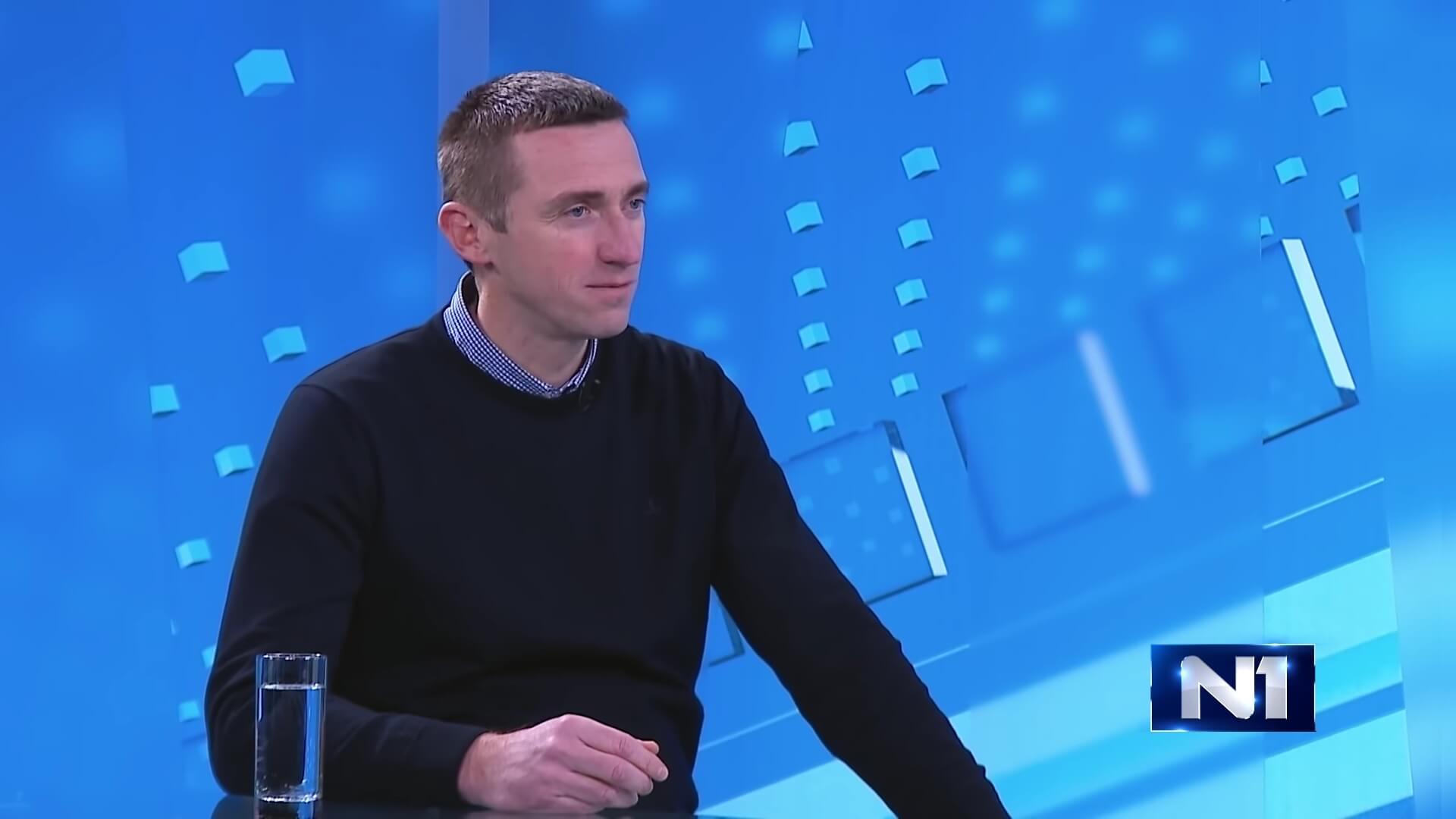
screenshot/ N1
Good idea but more talks needed?
„In Vukovar, parents do not choose the model of education that is imposed by politics, it is nowhere written in public“, said mayor Penava, as reported by N1.
Penava, a former member of the Croatian Democratic Union (HDZ), despite earning a new term in the recent local elections as an independent candidate, enjoyed support from Miroslav Škoro, runner-up candidate for Zagreb mayor elections, and the leader of the Homeland Movement (DP) supports Penava's idea.
„I lived in America for a number of years, in Hungary, I traveled the world... what is the difference between Serbian and Croatian mathematics? Is Argentina in Serbian in the northern hemisphere, and southern in Croatian? I don't get it“, said Škoro adding that segregation was done in malice with a tendency to divide children from the start.
„In Vukovar, the symbol of defense had priorities. Reconstruction of the water tower, and certain moves Penava did well in his last term (he wouldn't win elections if he hasn't), thinks that city needs to move on. I support him 100%“, concluded Škoro.
On the other hand, criticism is erected on national-level politics.
„I don't think that local officials are the ones who need to determine a way in which minority education will be conducted. Political trade is clear here, and I'm glad there is no longer just Serbian-Croatian trading coalition, but also another one“, said Dragana Jecov, a Croatian parliament member from the Independent Democratic Serb Party (SDSS) referring to the accusations of the right-wing that current coalition of HDZ and SDSS and is vile political trade.
Interior Minister Davo Božinović also said that while we need to work on erasing national, social, and political tensions, but this is a question that needs to be discussed more seriously.
Additionally, as N1 reported, the Ministry of Education pointed out that different models of education for Vukovar schools exist, and parents can choose which they find most suitable.
Accepting national differences or nationalistic uniformity?
Some improvements have indeed been seen in the city infrastructure, but Vukovar still remains a challenging place to live. Partly due to the tough economic situation, but also because of discrepancies among Serbian and Croatian residents. Earlier in June, there was even a violent incident when a 30-year-old Serbian member of the Grobari football fan group physically attacked a Croatian 13-year-old boy in front of a bakery for having a medicine mask with Croatian symbols.
„Sadly, this kind of thing happened too long in Vukovar, where people attack each other because of national disputes. Media aren't even introduced to some of these events. It is spread a lot, as evident by the constant police patrols around Vukovar high-schools where there are always police cars around“, said Vukovar police to Večernji List daily newspaper.
Such incidents, a misfortunate loose ends of the war, also come from the Croatian side. Earlier in May, a group of young men chanted anti-Serb slogans in Borovo Selo (close to Vukovar), a scene of heinous war crimes in the '90s), sparking condemnation from both president Milanović and the Croatian Government.
In that light, integrated schools might finally bring positive changes in regards to tolerance and peaceful life for Vukovar citizens. But again, not everyone sees the glass as half full.
Index.hr columnist Gordan Duhaček agreed in his column that Serbs and Croats don't need to go to separate shifts but warns how Penava isn't the guy that should unite them.
„Penava doesn't want to integrate Vukovar schools and end the troubling segregation in a way to ensure a better future for the whole city, but instead to impose his nationalistic, often anti-Serbian narrative as the official one. Penava wants that Vukovar Serbs bow down to his view of the Croatian state“, wrote Duhaček.
Duhaček also reminded the readership of the attempt and fail of the Danube International school that supposed to integrate pupils of both nations, an idea that spawned 16 years ago. But, the project failed, and Duhaček sees both Penava and SDSS leader Milorad Pupovac not feeling too sad about it.
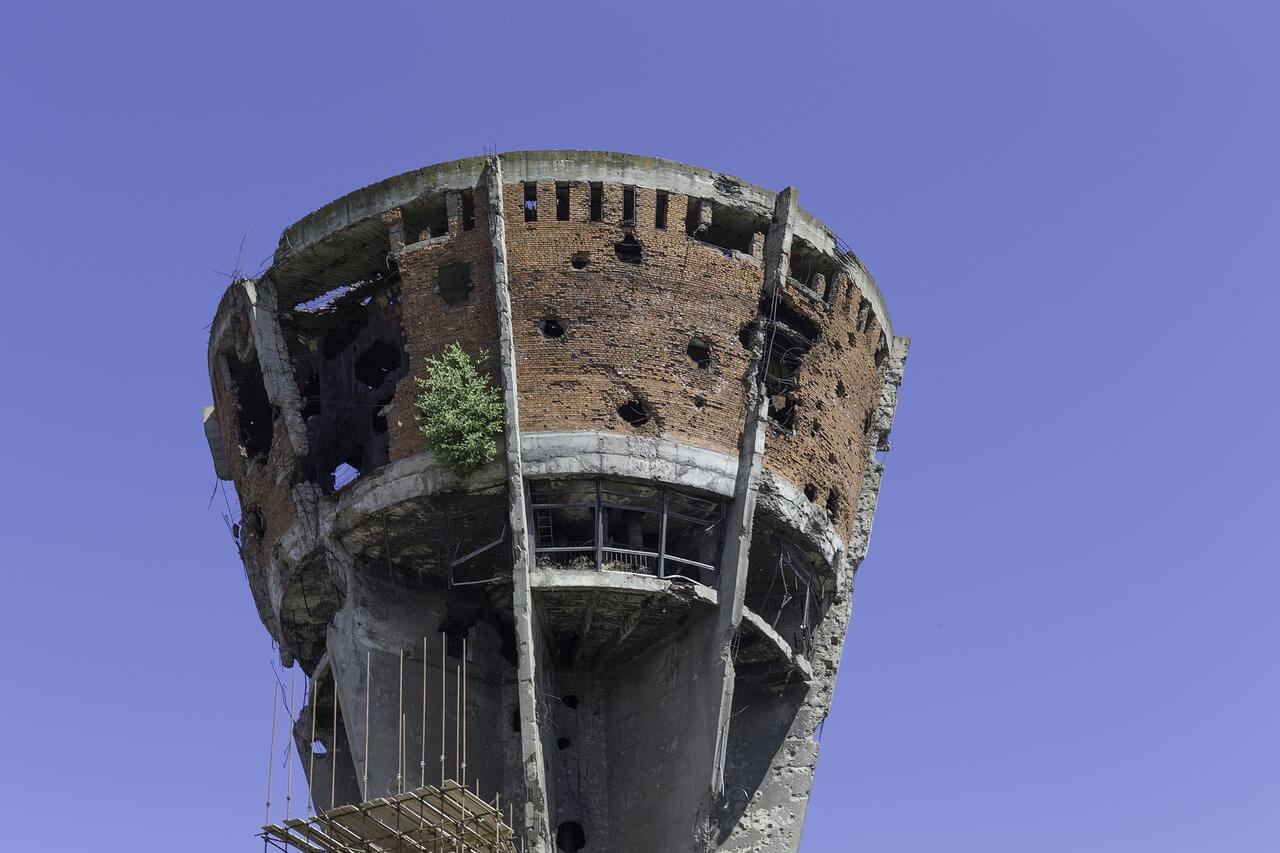
Iconic Vukovar water tower, pixabay
Questions on details
At the end of the week, the situation seems more confusing than clear. Is class integration a good idea? Could it save money for the city financially? What are some actual details of merging Croats and Serbians into one class? Obviously, Škoro is right that 2+2=4 in any math class around the world. But, troubling questions appear in subjects such as language and history. Croats and Serbs sadly have their own, different interpretations of historical facts, particularly when it comes to the last war, and while the speakers of two languages perfectly understand each other, some words do differ, and there is a different accent and spelling in the two formal languages. So, how can these issues be resolved? Would those two subjects remain in different shifts while universal subjects such as biology, math, or physics will listen in one merged classroom? Or will there be a different curriculum that would present both Serbian and Croatian history, Serbian and Croatian literature in that way, making Vukovar pupils more knowledgable in those areas than other pupils in the country?
Or some curriculum consensus on history could be reached, one that would satisfy both the Croatian and Serbian sides and thus truly open a doorway to the better understandings of the two nations in the future in perhaps the most nationally torn city in Croatia?
Obviously, Vukovar city authorities have some tensions with SDSS, but the city also has an expert associate for the development of civil society and national minorities, Siniša Mitrović in one of the City's departments. Did Mitrović manage to gain input from the Serbian minority in Vukovar about this merge? And how fast could the whole thing be realized? This autumn or maybe a bit later?
These are important and interesting questions that can only be answered either by mayor Penava himself or perhaps Josip Paloš, the director of the Vukovar City Education Department.
„Mayor Penava is in a lot of meetings and on fields, and his schedule is full. We will sadly not be able to answer you by your Friday deadline, but we will contact you at the earliest convenience“, said the lady at the Vukovar City PR service when I called them (and E-mailed) with a wish to arrange and conduct a brief phone interview.
While this article may present the current issues surrounding segregated education in Vukovar, this TCN reporter hopes mayor Penava will share more details about his plan on ending segregation in Vukovar schools and kindergarten with joint classes. If done right, this move can indeed be the way to a better, more peaceful future for Vukovar citizens.
Learn more about Vukovar on our TC page.
For more about education in Croatia, follow TCN's dedicated page.
PM Andrej Plenković: 32 Years After Founding HDZ Remains Strongest Political Party
ZAGREB, 16 June, 2021 - A delegation of the Croatian Democratic Union (HDZ) on Wednesday laid wreaths on the grave of HDZ founder and first Croatian president Franjo Tuđman to mark the party's 32nd anniversary, with the party leader, PM Andrej Plenković, saying the HDZ was the strongest political party in Croatia even today.
At the start of day-long events commemorating the party's 32nd anniversary, HDZ officials, led by Plenković, paid their respects at Zagreb's Mirogoj cemetery to Franjo Tuđman, whom Plenković described as "a statesman, a visionary, the man who led Croatia to freedom, independence, with the plebiscite support of the Croatian people, and with the courage and bravery of Croatian defenders."
"Even today, 32 years later, the HDZ is the strongest political force in the Republic of Croatia, in Croatia in which we have achieved all basic national goals - freedom, democracy and the protection of human and minority rights, and have built institutions. Now in the fourth decade of our independence, the goal is the economy, demographic revitalisation, social inclusion, following key global processes and the fourth industrial revolution, but also the green transformation and the digital transformation," Plenković said in a statement to reporters.
For more about politics in Croatia, follow TCN's dedicated page.
After Losing Local Elections, HDZ Shuts off Free Oroslavje Internet
June the 15th, 2021 - You've heard of sore losers before, probably in races you took part in back in school. As adults, we usually learn to take loss better and look at competition more healthily. That doesn't apply to everyone, though. Following their loss in the recently held local elections, HDZ has decided to shut off the free Oroslavje internet.
As Poslovni Dnevnik writes, the brand new mayor of Oroslavje, Viktor Simunic, who took over power from HDZ two weeks ago, announced that the former government in the city had turned off the free Oroslavje internet.
Upon arriving to work in the morning, Simunic was shocked the learn that there was no internet connection on any city computer.
''Last week, we asked the former government for all of the data in order to access the internet, as well as all the keys to the lockers. We didn't receive the data, the Oroslavje internet was cut off, and the keys were brought to the city administration only this morning.
The project, for which we all paid over 800 thousand kuna, was shut down. Since they deleted our database, unfortunately we don't even know who used the internet or how many users there are on it.
The following is a list of inventories and analysis of the situation, and we'll inform you about everything, but unfortunately we cannot solve the problem immediately due to its complexity. So I'd like to ask you for your understanding and patience.
I understand the anger and resentment, however this was not my decision.
I'm asking everyone who invested their funds in the equipment and used the free Oroslavje internet to contact the city's e-mail: This email address is being protected from spambots. You need JavaScript enabled to view it.,'' wrote Simunic on Facebook following the bizarre incident following HDZ's recent loss in Oroslavje.
For more, make sure to follow our dedicated politics section.
Highlights of the Week: 5 Big Events in Croatia from May 31- June 6, 2021
June 6, 2021 - TCN's highlights of the week. A look at the events in Croatia from May 31 through the selection of TCN's reporter Ivor Kruljac.
From significant political changes after the local elections to the losses and preparations in sport, the week was hyped by a strive for hope in Croatia. But, the tragic murder of Nino Čengić in Varaždin was a painful kick to the stomach. Here is another weekly selection of the news depicting the bittersweet life in Croatia.
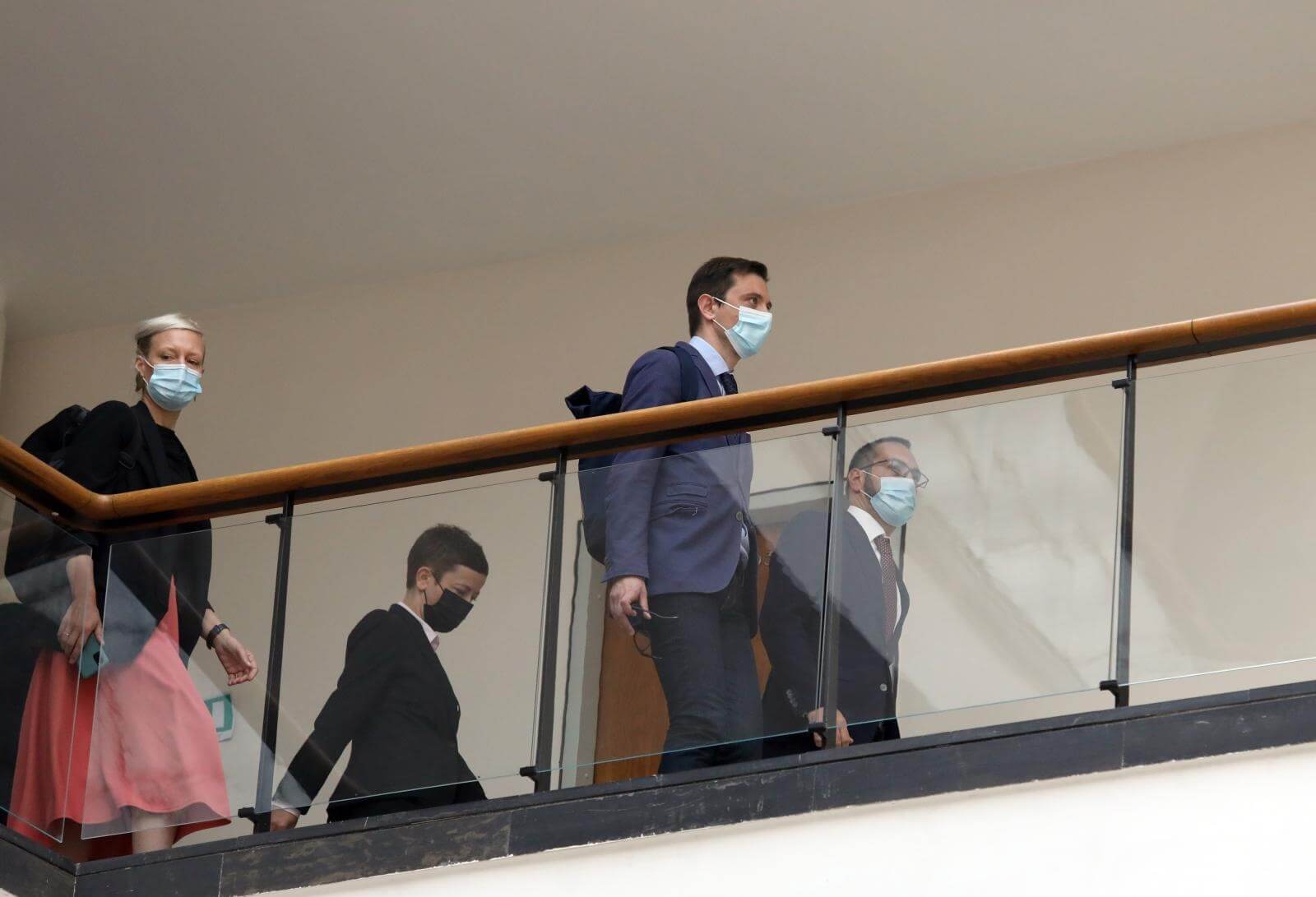
© Patrik Macek / PIXSELL
Highlights of the week: Tomislav Tomašević officially. becomes the new mayor of Zagreb
Zagreb local elections winner Tomislav Tomašević met with Jelena Pavičić Vukičević for an official ceremony of transferring power on Friday, which makes Tomašević officially the new mayor of Zagreb.
Media attention was also caught for the fact that Tomašević was four minutes late to the ceremony because he was waiting for the ambulance on Cibona because a woman fell ill in the middle of the street. But, for the bigger public interest, it's important to note today was the first time for Tomašević to have a detailed view on the financial situation of the City of Zagreb, giving him a clear picture of the debt problem Zagreb has.
As TCN reported earlier, Tomašević told the press after the ceremony that the situation is not good, but there are solutions. Still, so far, no more details were given on the two-thousand-odd-page reports on the 2020 budget execution and preliminary figures. Additionally, the new city assembly would hold the founding meeting on 17 June.
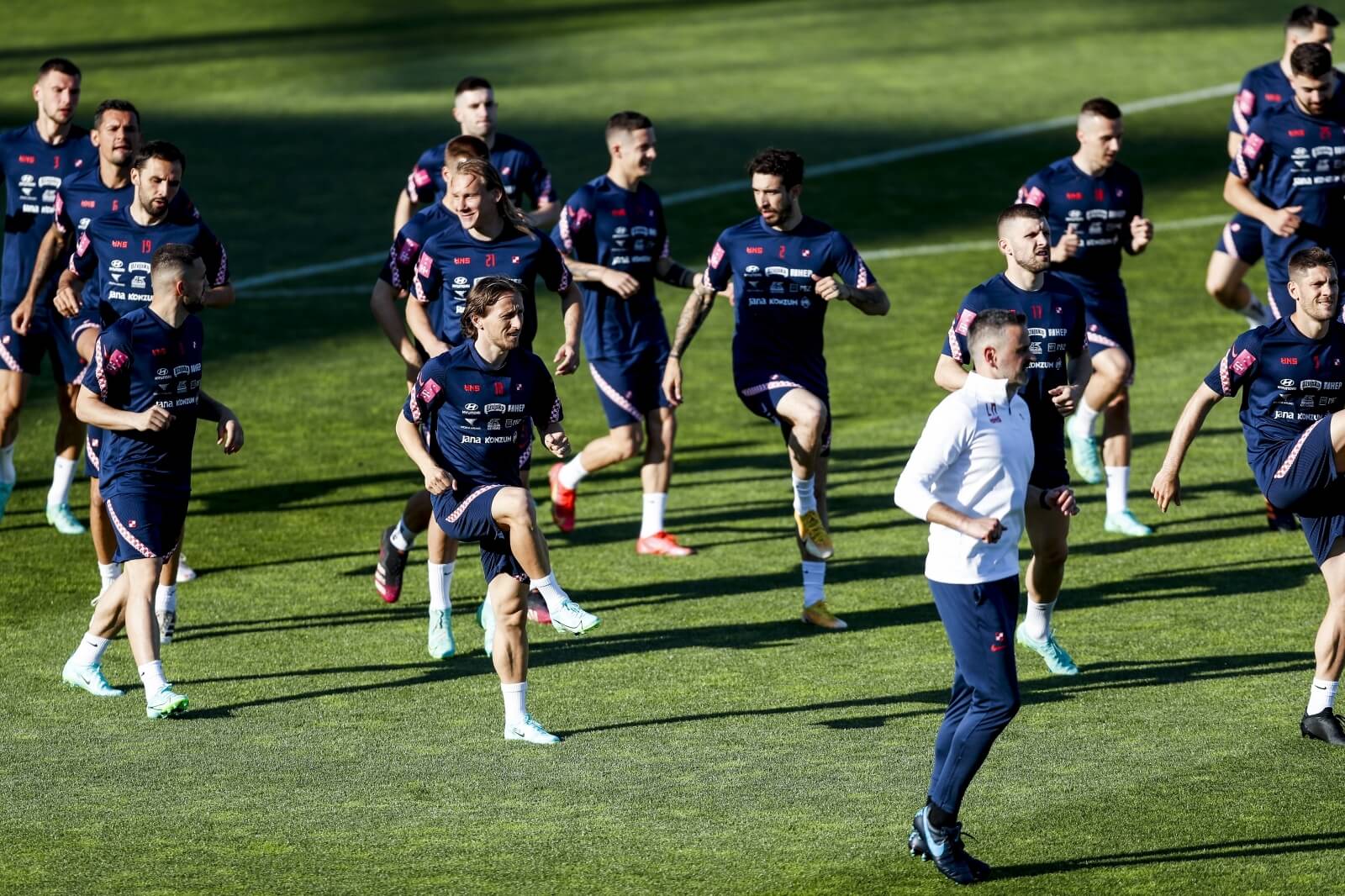
© Slavko Midzor / PIXSELL
Highlights of the week: Zlatko Dalić on Croatian National Football Team
The Croatian National Football Team is preparing for the friendly clash with Belgium. As reported by TCN, Zlatko Dalić faced the press on Friday ahead of the match.
„I am satisfied with everything except the result. We had minor injury problems. We did the rest as expected, but the draw with Armenia left a bitter taste. In that game, we had to win 4-0 or 5-0, not draw 1-1. I am dissatisfied with this result. Plus, we created 5-6 percent chances, and we didn't do that in three games in a row at the beginning of the World Cup qualifiers against Slovenia, Cyprus, and Malta. We were nonchalant and irresponsible and did not realize them. We were not specific, and that is a minus“, said Dalić to the press.
Dalić also pointed out that the national team is aware of its obligation to the Croatian people. He spoke about the problems in the national team, the pros and cons of the draw against Armenia, and the expectations from players who are dissatisfied with their status. One of them is Andrej Kramarić, who, after 20 goals scored in the Bundesliga this season, is not safe among Dalić's starters. A few days ago, he advised the media to ask Davor Šuker what he would say after such a season.
Expectionsare big ahead of the EURO championship, and no doubt fans will pay attention with close interest.
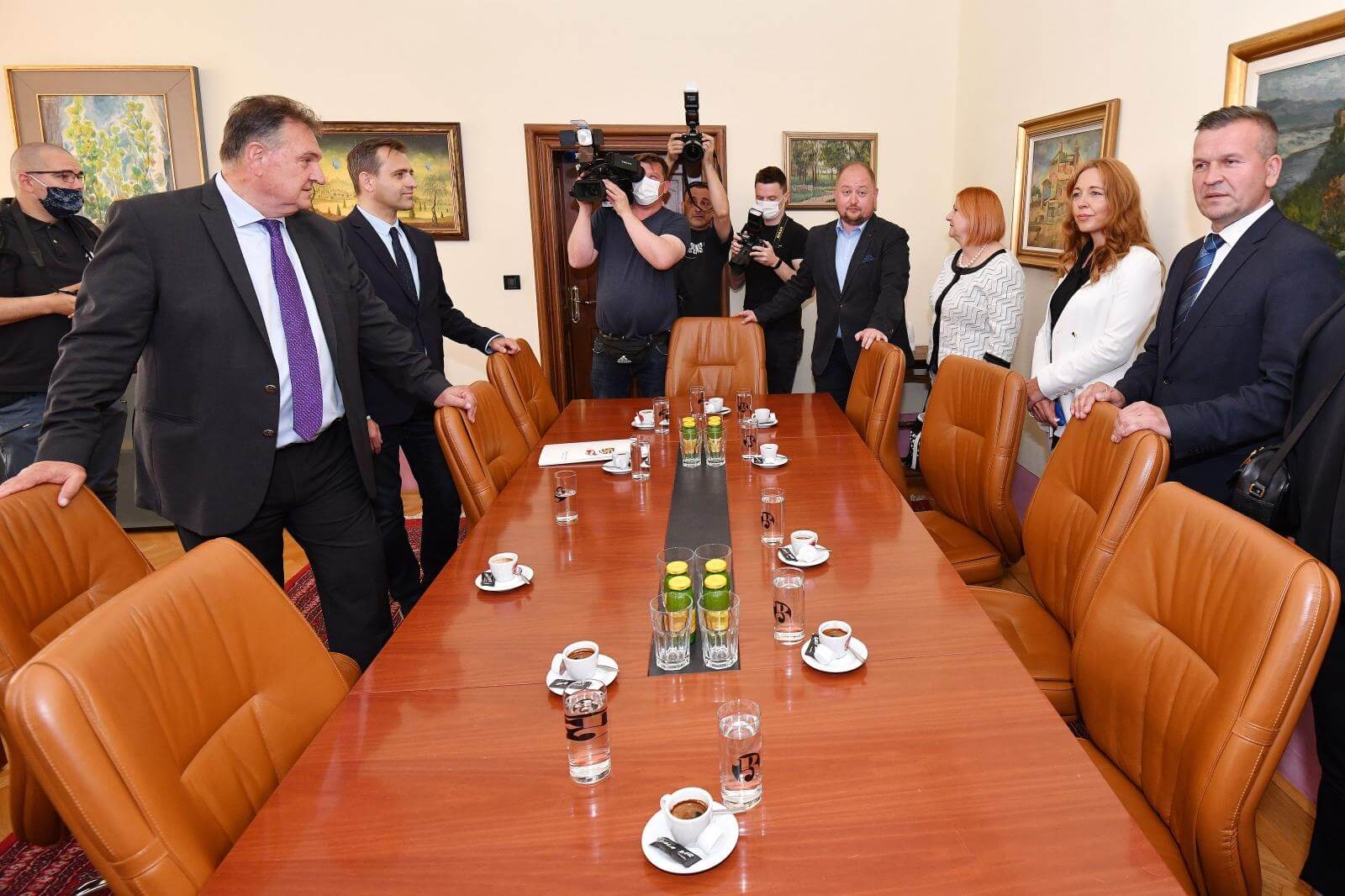
© Vjeran Zganec Rogulja / PIXSELL
Highlights of the week: Anđelko Stričak, new prefect
The power transfer ceremony on Friday also took place in Varaždin where Anđelko Stričak defeated current Varaždin prefect Radimir Čačić.
„The victory is well deserved. In the past nine years as the president of Varaždin county organization of the Croatian Democratic Union (HDZ), and in six years as a member of the parliament, I've been to every corner of Varaždin county and talked to everybody. I heard the needs of our citizens, and I tried to solve them by cooperating with coalition partners on every level. Of course, I'm not the best, most capable or most perfect, but I will try with my team to give my best that everybody in the county feel changes for the better“, said the new Varaždin County prefect Stričak, as reported by Varaždin county's official website.
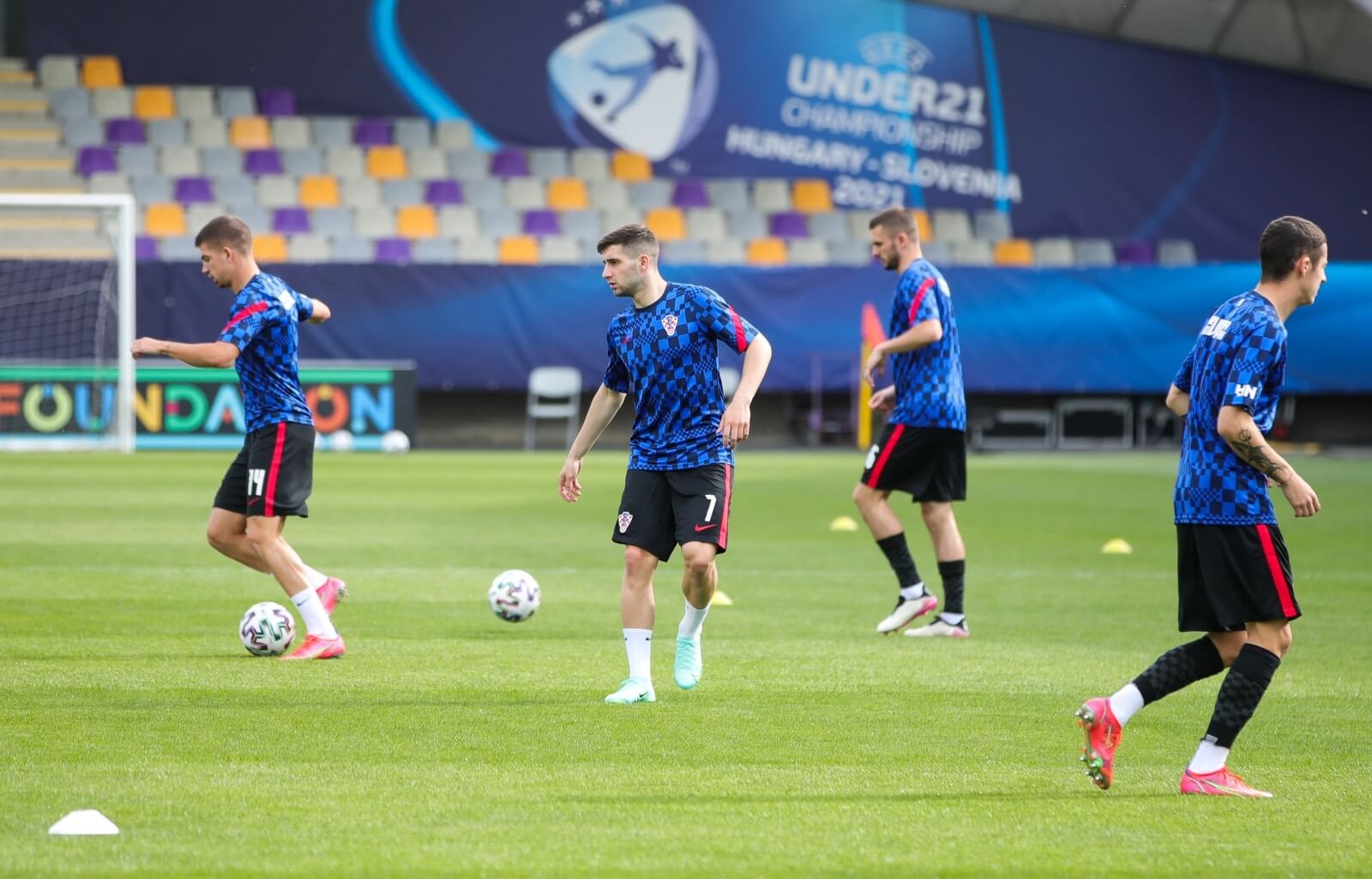
© Sanjin Strukic / PIXSELL
Highlights of the week: Croatia Loses to Spain in the Under-21 European Championship
Spain was better than Croatia after extra time in the Under-21 European Championship quarter-final in Maribor on Monday. The match ended 2:1. As reported by TCN, Croatia was solid in the first half and threatened the Spain goal on a few occasions. Despite Spain's high pressure, Ivanušec had a chance from 20 meters in the 7th minute, and in the 23rd, Bradarić's shot was blocked by the Spain defense. Spain retaliated with a Diaz shot from 20 meters, but Croatia's defense made it difficult for them to do much more.
The young Croatia national team fought against Spain for a spot in the semifinals.
Igor Bišćan's side met Spain at Ljudski Vrt stadium in Maribor.
"The guys are aware that we have a great chance, they are motivated to do something, and we are all around them to give them that chance and be supportive. They have quality," Bišćan announced before the match. 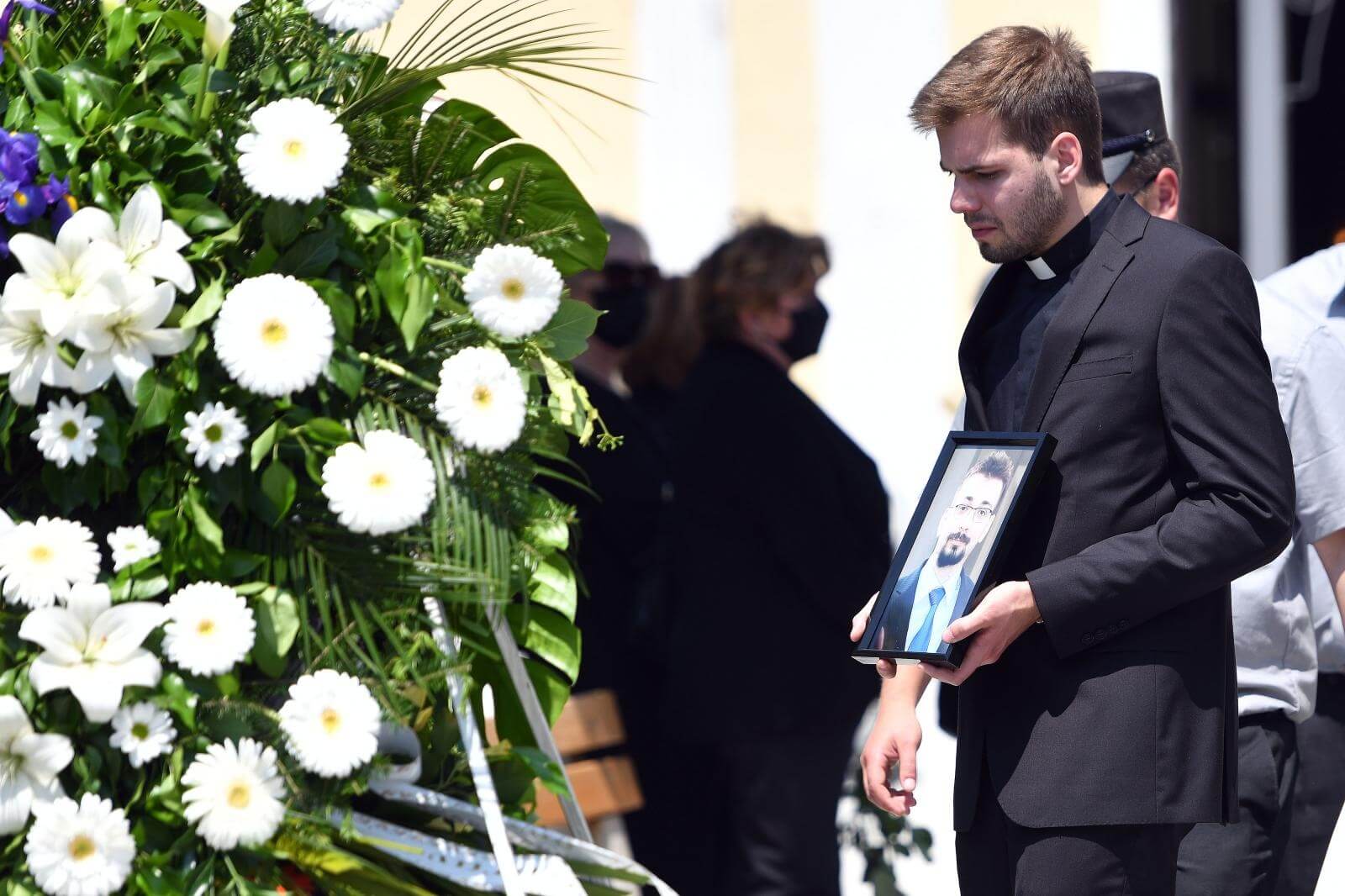
© Vjeran Zganec Rogulja/ PIXSELL
Highlights of the week: Nino Čengić funeral in Varaždin
The Funeral of the English professor Nino Čengić who passed away last Sunday, was held on Wednesday. Nino Gengić, a substitute English professor in one Varaždin school, was brutally beaten with bats and chains in front of the local club in Varaždin called Kulturana. He was 35 years old.
As Jutarnji List reports, four suspects aged 24-29 are currently in custody while the investigation is ongoing as to what lead to this attack. Suspect's apartments were searched, and one suspect illegally possessed a considerable amount of ammo and fire weapons to match. All suspects were previously known to the police for troubling behavior, and the most tragic was the fact that 15 people witnessed the beating, but nobody stopped it.
To learn more about Croatia, have a look at our TC website.
For more about news in Croatia, follow TCN's dedicated page.
Milanović: Plenković is Promoter of Right to Lie
ZAGREB, 3 June 2021 - President Zoran Milanović on Thursday called Prime Minister Andrej Plenković a promoter of the right to lie who had now classified himself "under authentic interpreters of battles from the Homeland War" and declared himself "almost a war commander".
The president wrote this on Facebook, reacting to Plenković's comment on his proposal that the anniversary of the Croatian military and police Operation Storm be commemorated in other cities besides Knin.
Milanović accused Plenković of "denigrating the proposal to commemorate Operation Storm in other cities in which heroic battles were fought in the Homeland War, and not only in Knin, declaring himself - with the words 'many of us look at Knin differently' - almost a war commander," Milanović wrote.
The president added that the initiative to commemorate Operation Storm "also where hundreds of Croatian defenders were killed, near Petrinja and Glina, for instance, was proposed to him by war generals and commanders who fought liberation battles".
Asked by the RTL commercial broadcaster to comment on President Zoran Milanović's proposal to commemorate anniversaries of the Croatian military and police Operation Storm in Knin every five years and to commemorate the anniversary in Glina this year, Plenković said on Wednesday he didn't know about it, but he found "the repeated use of double criteria particularly indicative".
"He constantly talks about Knin as some kind of train station, a barracks. Many of us look at Knin differently, at its role, at Zvonimir's City, at the Knin Fortress, at the symbolism of the flag at the Knin Fortress. Those are different views," Plenković said, referring to the turbulent history of that Dalmatian region.
For more about politics in Croatia, follow TCN's dedicated page.


